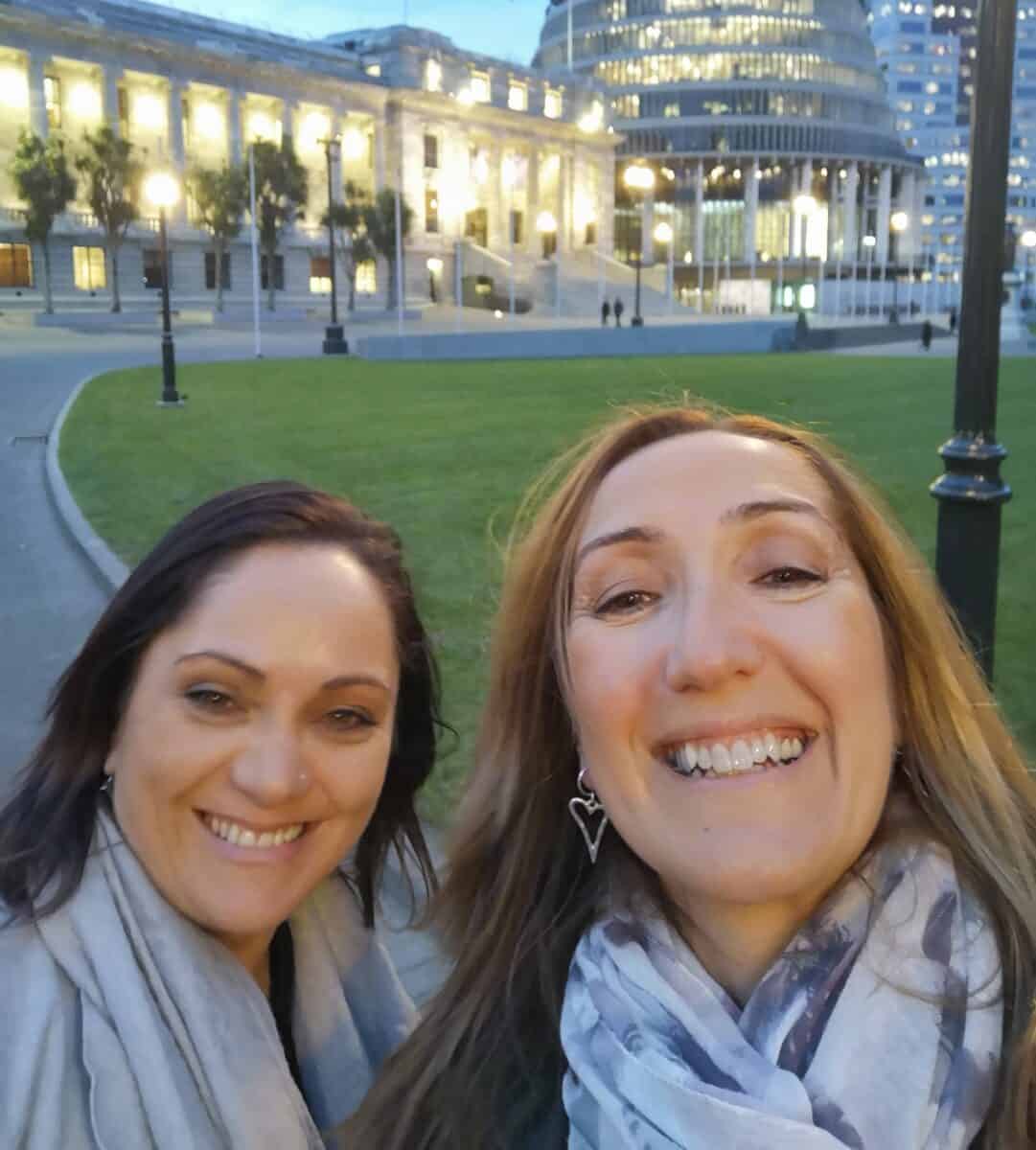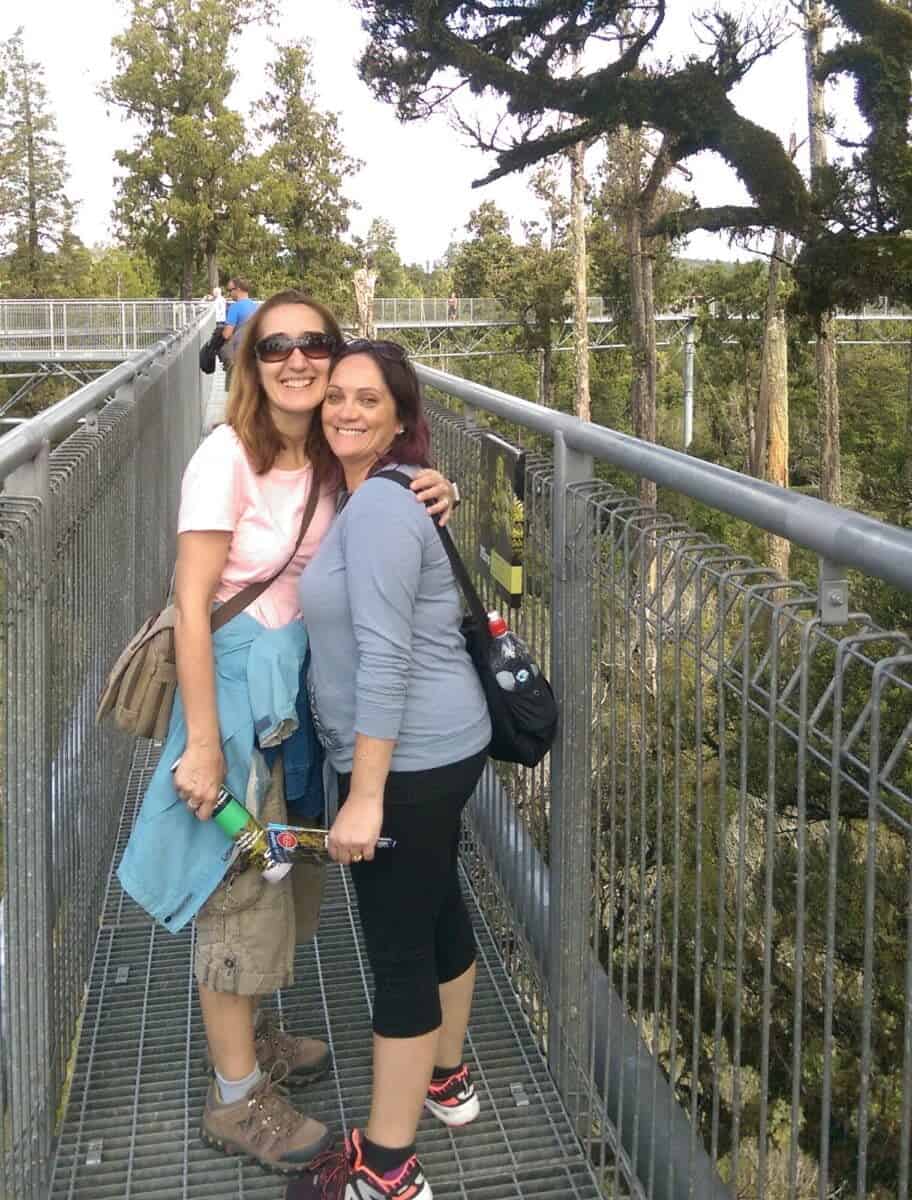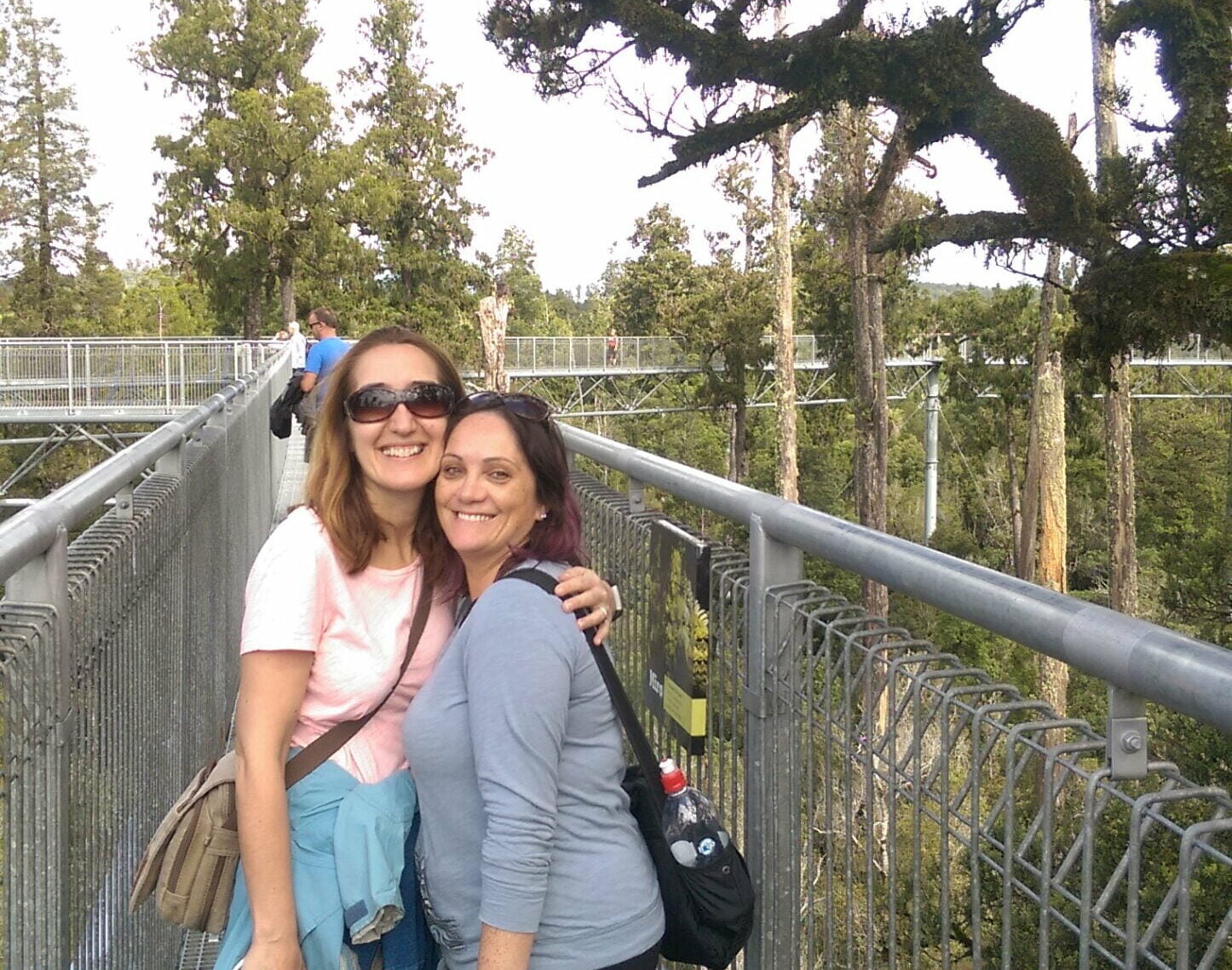Mariella is someone you want on your team. An anthropologist by training, Mariella has worked with Forest Research (Great Britain’s principal organisation for forestry and tree-related research) for about 15 years.
“For the bulk of that time, I’ve been building a programme around the social dimensions of tree health,” she says.
Several years ago, Mariella’s work led her to become involved with a programme researching more effective methods of eradicating pests once they are found in New Zealand. Through this programme, Mariella met Melanie Mark-Shadbolt.
“Mel and I formed quite a close relationship in thinking through some of the social research and indigenous research components of forest and tree health for this programme,” says Mariella.


When the BioHeritage NSC was being developed, Mel talked Mariella through the Oranga Programme and Mariella suggested that it would be beneficial to have an impact component using a “critical friend” approach.
“In this framework, ‘critical friends’ are people whose role it is to prompt, push, and challenge projects to think about how they are engaging within their team and with the outside world,” says Mariella.
Mariella’s suggestion became Research Area 5: Critical Friend within the Oranga programme. The role of this research area is to support the programme’s other four research areas towards the satisfactory completion of their tasks and the fulfilment of the programme’s aspirations.
“RA 5 works with each of the projects, getting them to think about their engagement processes, values and aims,” says Mariella.
As the Oranga programme evolved, Mariella found herself taking a step back to make room for new international researchers with fresh ideas.
“Micheal Heimlick, who had done evaluation work with indigenous communities based around values, came in and turned the impact framework that I had been working with into a whole visualisation of a broad range of values that came from the Oranga programme itself,” says Mariella. “It was a wonderful journey to have witnessed. I’m still involved with the programme for sense checking and discussions, but Micheal is leading this work.”
Mariella now contributes more broadly to the Challenge through her role on the International Science Advisory Panel (ISAP). ISAP meets regularly to review the Challenge’s programmes, outputs and outcomes. The panel offers suggestions for improving interconnectedness across the programme and also provides advice on things like career development options for early-career staff.
The Challenge has benefitted in innumerable ways from the guidance and perspectives brought by our ISAP members over the years. It was heartening to learn from Mariella that the feeling is mutual.
“I have been so inspired by the Oranga programme and by the Challenge. I’ve found the way the Challenge looks at research, integration, capacity building, societal involvement and the integration of the sciences and of cultures to be absolutely amazing. I don’t think I’ve seen that anywhere else.”
Mariella Marzano
“I have been so inspired by the Oranga programme and by the Challenge. I’ve found the way the Challenge looks at research, integration, capacity building, societal involvement and the integration of the sciences and of cultures to be absolutely amazing. I don’t think I’ve seen that anywhere else.”
For example, the Challenge has been prompted by kaupapa Māori to reframe kauri dieback as kauri ora (health). Mariella feels she has benefited from shifting her thinking to one of forest health rather than forest disease.
“If you talk about environmental issues in a negative sense, you’re actually creating negativity around it,” says Mariella. “What you actually need to do is talk about it in a positive sense so that you have a positive environment and aura around it to go forward to look for solutions.”
Without our ISAP members, the programmes within BioHeritage would be limited by our own knowledge and understanding. With the help of ISAP and our many other ‘critical friends’, BioHeritage has been able to extend the boundaries of what we know and how we operate to create a flourishing body of work inclusive of a broader range of knowing and doing.
“Pests and pathogens know no boundaries,” says Mariella. “I think it is absolutely essential that we collaborate across our own boundaries – across our geographical, ecological, social, political and cultural boundaries – because that’s how we learn from each other.”
BioHeritage NSC would like to thank our International Science Advisory Panel for their ongoing advice, support and enthusiasm.
Jenny Leonard
